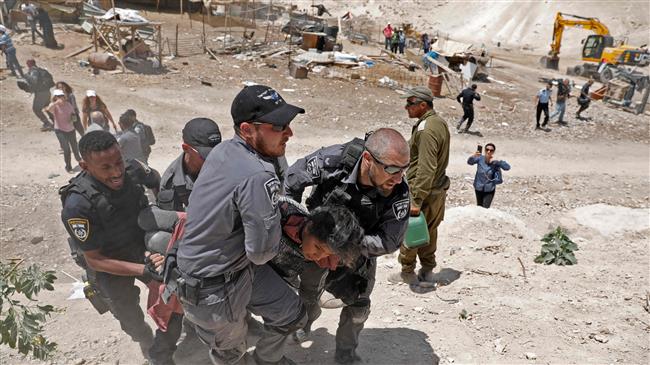
RNA - The World Humanitarian Day is an annual occasion dedicated by the United Nations General Assembly to raising public awareness of the millions of people who risk their lives in order to provide food, water and other assistance to people in desperate need in conflicts, in natural disasters and other emergencies. This year, humanitarians around the world call for greater protection of civilians, humanitarians and health workers in conflict zones, WAFA reported.
“Today, I applaud the committed humanitarian workers in the occupied Palestinian territory (oPt), especially my national colleagues, who regularly face personal risk and assaults on their dignity, often while withstanding the same restrictive conditions that drive the humanitarian crisis in the oPt,” said McGoldrick in a statement on this occasion.
“Particular admiration goes to the health workers of Gaza, who, since 30 March, have exerted heroic efforts to treat people injured during demonstrations along Israel’s perimeter fence. I mourn the deaths of the three Palestinian health workers who were killed in this context and also I am outraged by the injury of over 370 others, who risked their own lives while trying to save the lives of other Palestinians.”
McGoldrick said two million Palestinians in the Gaza Strip have been identified as being in need of active protection measures in 2018, due to exposure to conflict and violence, displacement or restricted access to livelihoods and essential services. He said that 17,700 Palestinians remain displaced from the 2014 Israeli military onslaught against Gaza. “Of concern, in spite of credible evidence pointing to serious violations of international law during these hostilities, accountability for the victims remains elusive,” he said.
Protection concerns also continue in the West Bank, where many Palestinians in Area C, which makes over 60 percent of the area of the West Bank, East Jerusalem and the H2 part of Hebron city “endure occupation-related policies and practices that deprive them of their rights and generate pressure on them to leave their communities.”
“Overall, the protection available to Palestinians in the oPt is growing weaker by year, resulting in a pattern of increased dependency on humanitarian assistance that will be hard to reverse,” he said.
McGoldrick concluded his statement by calling on all actors “to ensure that humanitarian workers are able to operate in line with humanitarian principles and free from restrictions and harassment.”
He called on Israel “to uphold its obligations as an occupying power,” on the Palestinian Authority and Hamas authorities “to ensure they act in line with their obligations under international law,” and on “countries to undertake credible and effective investigations into allegations of serious violations of international humanitarian law and to hold perpetrators to account.”
847/940